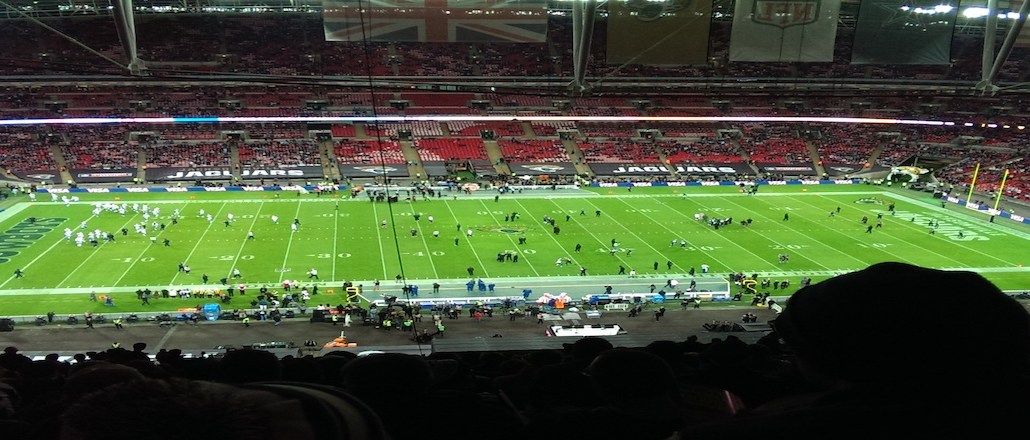Secure your place at the Digiday Media Buying Summit in Nashville, March 2-4
‘It’s a slow bleed’: NFL ratings drop is a sign of TV’s gradual decline

Revolutions often take a hell of a lot of time.
For years, people have said that the NFL is immune to viewership declines that have afflicted the rest of broadcast and cable TV. But last week, it was revealed that NFL Nielsen ratings were down 8 percent for the 2016 season. While parties who want TV programming to become more digitized might use this finding to spell doom for linear TV, analysts say that the ratings declines from an industry stalwart are more indicative of a gradual decline of a still profitable industry.
“One day [linear TV losing its marketplace grip] will be the case,” said Joel Espelien, an analyst at The Diffusion Group. “But now it’s just more of a slow bleed.”
The NFL declined interview requests for this story, but a league spokesperson attributed the ratings decline to the presidential election. Year-over-year ratings were down 14 percent prior to the election and just 1 percent after the election, however the fact that the ratings still dropped after the election despite surges by the Dallas Cowboys and Green Bay Packers, two of the NFL’s most popular teams, is noteworthy. Industry insiders have also speculated that saturation of too many games being broadcasted at various times, poor matchups, national anthem protests and off-field scandals may have also contributed to drops in viewership. The chart below shows how the year-over-year ratings discrepancies shifted throughout the season. The election occurred between weeks nine and 10.
But regardless of what drove the decline, Espelien noted that the viewership drops can be problematic for networks who are stuck to long-term legacy deals despite how rapidly the rest of the media industry moves around them. One researcher requesting anonymity said, “The ESPNs who locked in sports rights without flexibility are fucked.”
During the NFL season, Bloomberg reported that although networks spent $57 billion to broadcast NFL games over the next decade, they were having to give away more ads to guarantee advertisers the viewers they were promised prior to the ratings declines. The viewership declines illustrate that the NFL is in a rights bubble, said TV industry analyst Alan Wolk.
Brandon Ross, an analyst at financial services firm BTIG, emphasized that although the NFL’s ratings dropped, it’s important to recognize that it’s still the most watched programming on TV. And even if its ratings continue to fall, there is no certainty that the rate to acquire its broadcasting rights will fall in lockstep because content that keeps people on linear TV is becoming scarcer, he said.
Brian Wieser, an analyst with Pivotal Research, said that without more empirical research on the matter, a single-season sample is too small to say anything definitively about TV ratings. Wieser also said that hyped sports matchups can still demonstrate the potential of sports broadcasting. Just a few months ago, the World Series had its best ratings in 12 years after the Chicago Cubs won their first championship in 108 years. If the Cowboys reach the Super Bowl, it’s not hard imagining new records getting set.
“A few million dollars of research would give us great insights into tens of billions of dollars in advertising and licensing fees,” he said. “But it is rare that anyone wants to spend the money to understand it.”
Image via Creative Commons
More in Future of TV

Future of TV Briefing: CTV identity matches are usually wrong
This week’s Future of TV Briefing looks at a Truthset study showing the error rate for matches between IP and deterministic IDs like email addresses can exceed 84%.

Future of TV Briefing: How AI agents prime TV advertising for ‘premium automation’
This week’s Future of TV Briefing looks at how agentic AI can enable TV networks to automate the sales of complex linear TV ad packages.

Inside NBCUniversal’s test to use AI agents to sell ads against a live NFL game
NBCUniversal’s Ryan McConville joined the Digiday Podcast to break down the mechanics of the company’s first-of-its-kind agentic AI ad sales test.





